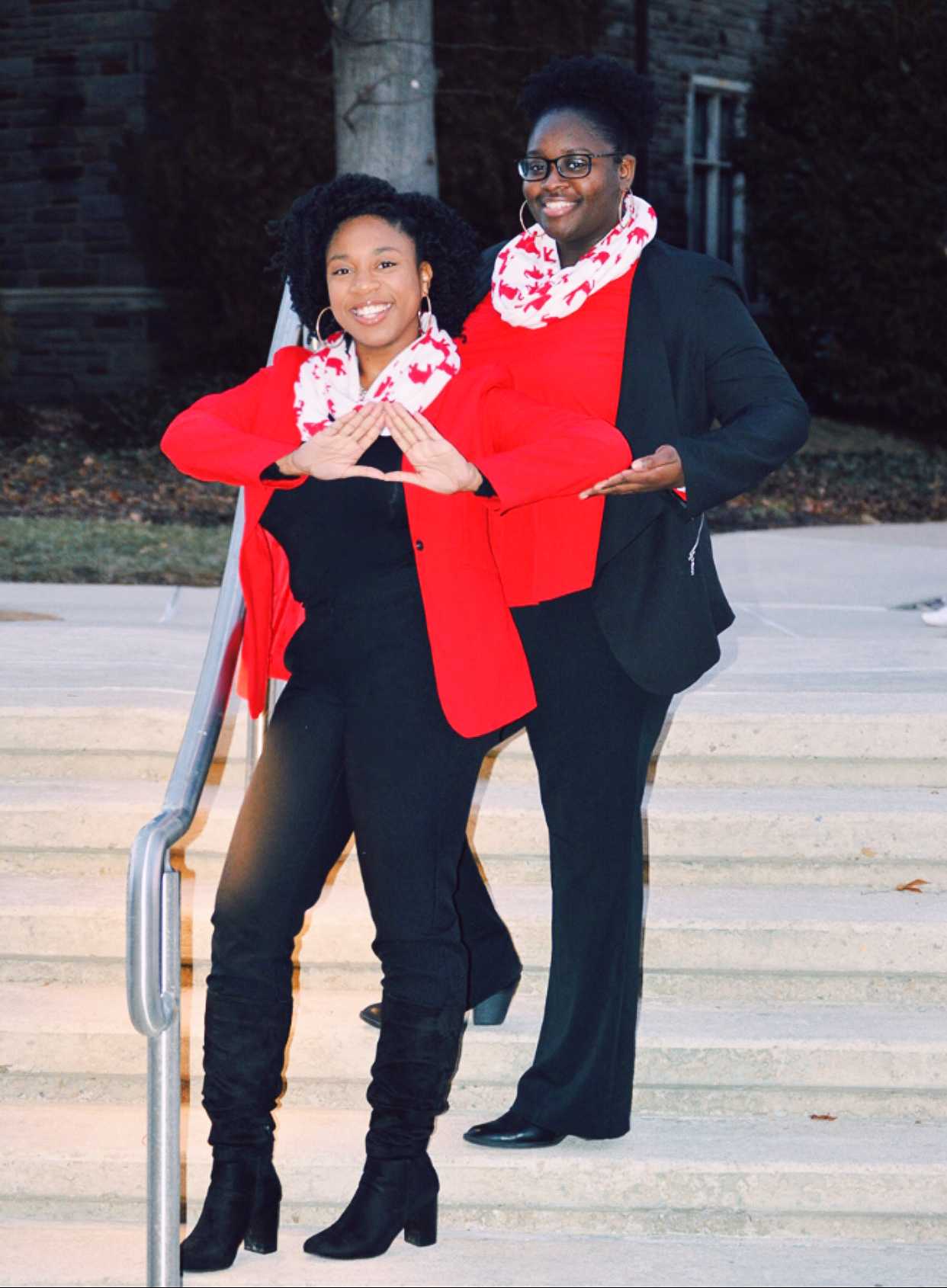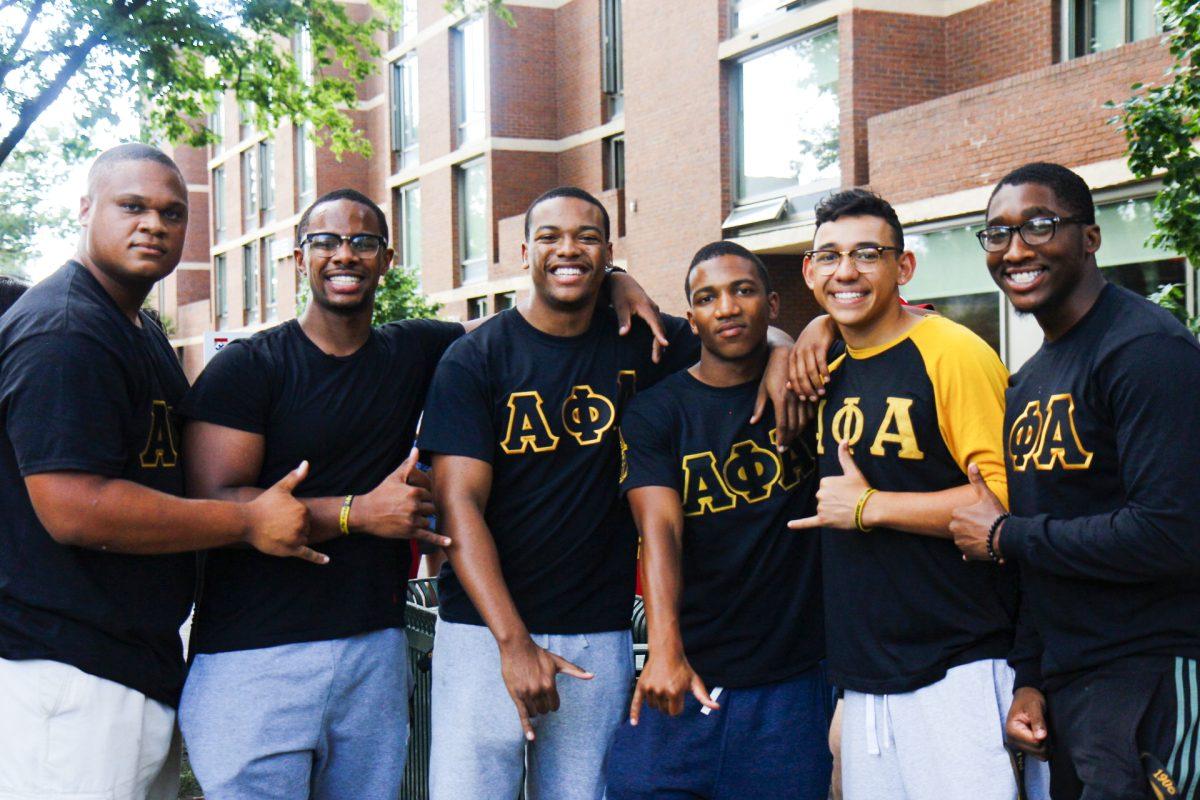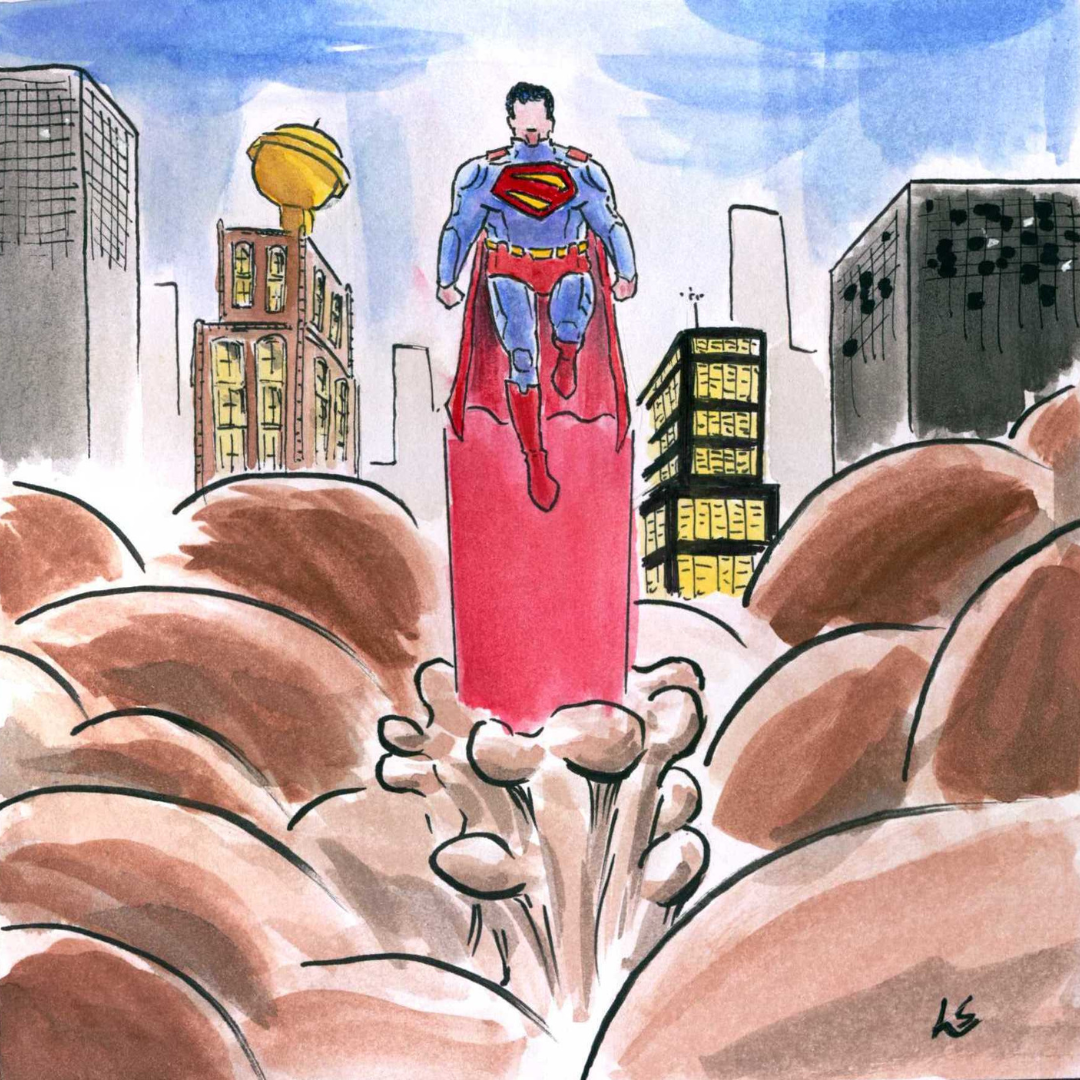NPHC city-wide chapters provide support for black students
Four of the nine historically black National Pan-Hellenic Council (NPHC) city-wide chapters provide a community for black students on St. Joe’s predominantly white campus.
Also referred to as the Divine Nine, these black Greek organizations provide a city-wide network for students in Philadelphia founded on scholarship and service. The four organizations that have chapters at St. Joe’s are Alpha Phi Alpha Fraternity Incorporated, Alpha Kappa Alpha Sorority Incorporated, Omega Psi Phi Fraternity Incorporated and Delta Sigma Theta Sorority Incorporated.
Destiny Green ’18, the former secretary for the Epsilon Phi city charter of Delta Sigma Theta during her junior and senior years at St. Joe’s, said that her experiences in her sorority helped her adjust to a predominantly white campus.
“Whenever I went to an event my chapter was holding, I felt comfortable,” Green said. “It was good to be around students who look like me.”
Green said that the lack of diversity in other Greek organizations at St. Joe’s discouraged her from rushing one of the five social sororities specific to campus.
“I would have been the only black girl to do that,” Green said. “I feel like I am always the black girl. In class I am the black girl. To be in an organization for life, I would want somebody who looks like me.”
Montell Brown, senior at the University of Pennsylvania and president of the Psi city charter of Alpha Phi Alpha, said the Divine nine were founded at a time when black students did not have social organizations on campuses that would allow for bonding. The first of the Divine Nine, Alpha Phi Alpha, an African American fraternity, was founded in 1906. According to a Cornell University history timeline, most black students were not included in traditional white student organizations during this time and had to form their own.
“We were founded at Cornell University, which is a predominately white institution,” Brown said. “There were no outlets for black men at that point, so we were founded by our seven founders with a need to support each other financially, socially, academically, spiritually and fraternally.”
Natalie Walker Brown, director for student inclusion and diversity, said organizations specific to students of color can improve their college experience, especially on predominantly white campuses like St. Joe’s.
“Any time our students can be involved in something that was created just for them, to empower them, to uplift them, so they can turn around and give back to a community that looks like them,” Walker Brown said. “[These organizations] can be culture-changing at any location.”
Jasmine Jones, a sophomore at Drexel University and current president of the Epsilon Phi city charter of Delta Sigma Theta, said the sorority and its members are focused on being community service oriented as well as internationally aware and involved.
“We are at the forefront of being active in bringing people together, not just for the sake of sisterhood or brotherhood, but we have the community in mind,” Jones said.

According to Alexis Wilson ’19, former president of Black Student Union, there are currently no St. Joe’s students involved in any of the four city-wide NPHC chapters.
Walker Brown said St. Joe’s should constantly advertise black Greek organizations so the community can start a chain reaction of involvement, especially for incoming students.
“We have a thriving community of people that are participating in historically black greek letter organizations, so it’s important that all of our students see themselves represented in fraternity and sorority life,” Walker Brown said.
When asked for numbers regarding the racial breakdown of the university’s on campus social sororities and fraternities, Alpha Phi, Sigma Sigma Sigma, Phi Sigma Sigma, Alpha Omicron Pi, Alpha Gamma Delta, Lambda Chi Alpha, Sigma Phi Epsilon and Sigma Pi provided a statement to The Hawk.
“Collectively we feel that we should not be defined by numbers,” the statement said. “We are accepting of all individuals and for that reason we do not ask potential new members to disclose their race during the application process. We also open not only recruitment but all of our events to the entire campus community to encourage the inclusion of all members of this campus. We are looking forward to continuing to address the diversity issue with the community in the upcoming school year.”
Alaina Boccino ’20, president of St. Joe’s Panhellenic Council, said the council has been making efforts to have more students of color in social Greek life on campus. According to the Student Leadership and Activities website, approximately 22% of the St. Joe’s undergraduate student population is a member of a social fraternity or sorority.
“We did a diversity training for our recruitment counselors,” Boccino said. “Over the past few years, [diversity has] been a little better, but obviously we still struggle with it.”
The diversity training was led by Imani Briscoe ’17, program coordinator for the Center of Inclusion and Diversity. Briscoe said the training gave advice on how to recruit students of color to predominantly white Greek organizations.
“[Greek organizations] have the foundation pieces, but their ability to do that depends on the intention behind it,” Briscoe said. “Making sure that they are building authentic relationships, in everything that they do, making sure that they are embodying this not just around recruitment but in general.”
Jones said she along with the presidents of each Greek life organization on Drexel’s campus meet periodically to promote unity among all of them.
“[There was] a gap because we never had these opportunities,” Jones said. “We would try to [find ways] everyone can mesh together and learn a little bit about each other.”














































